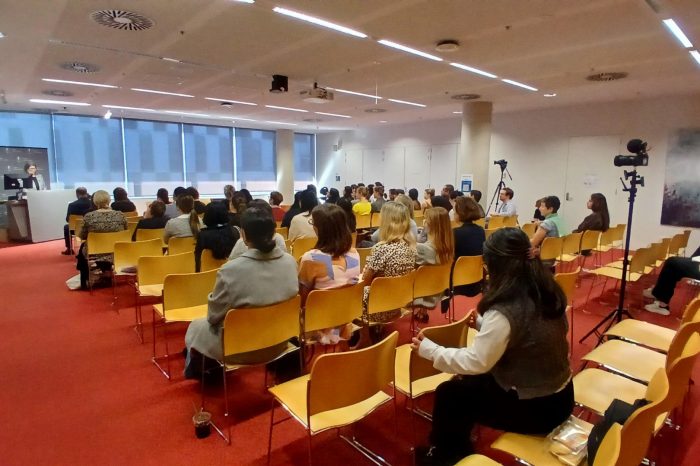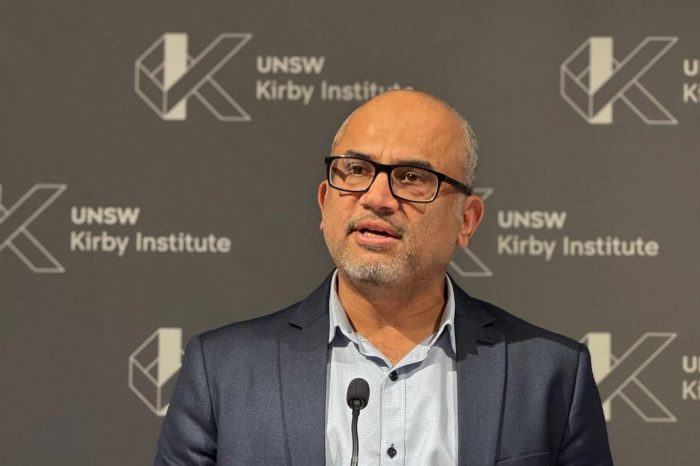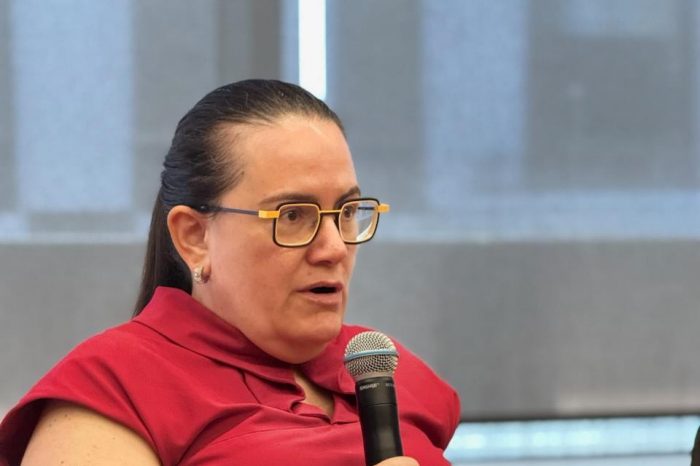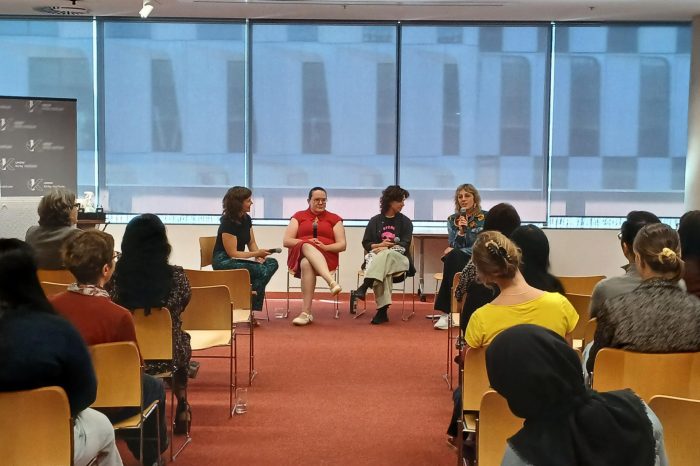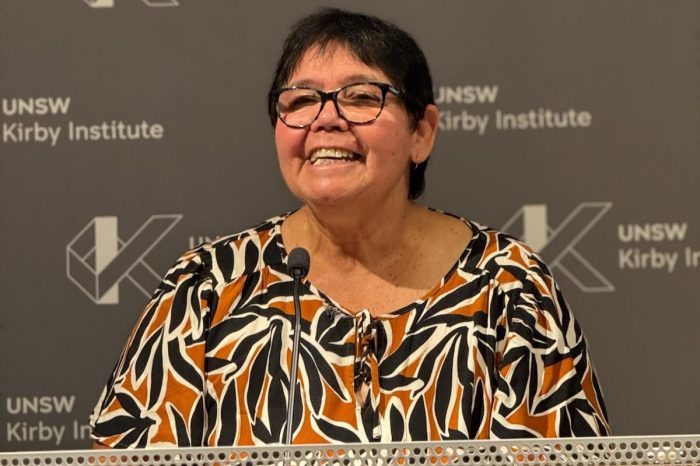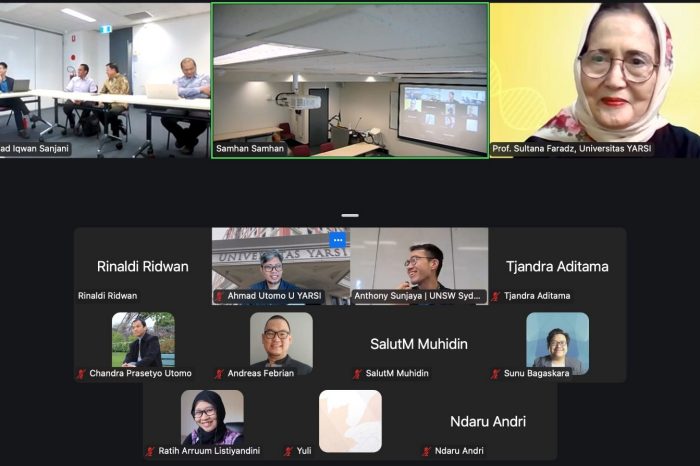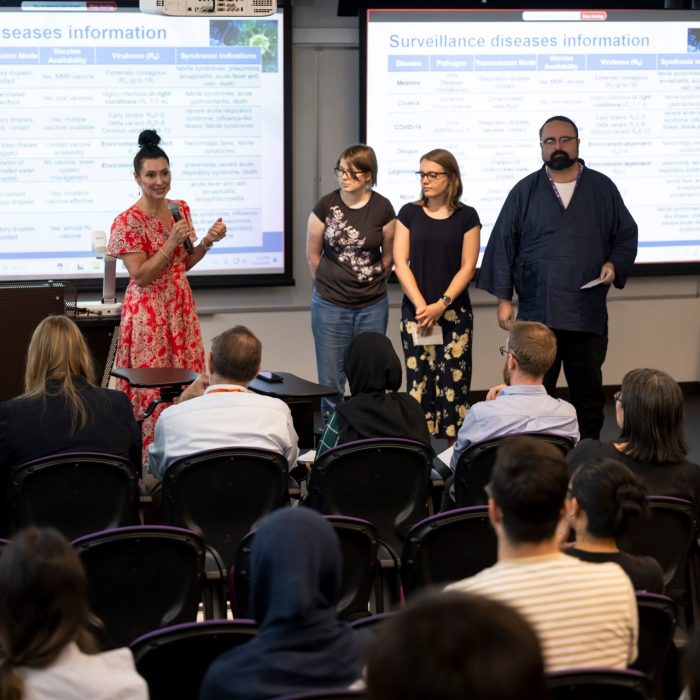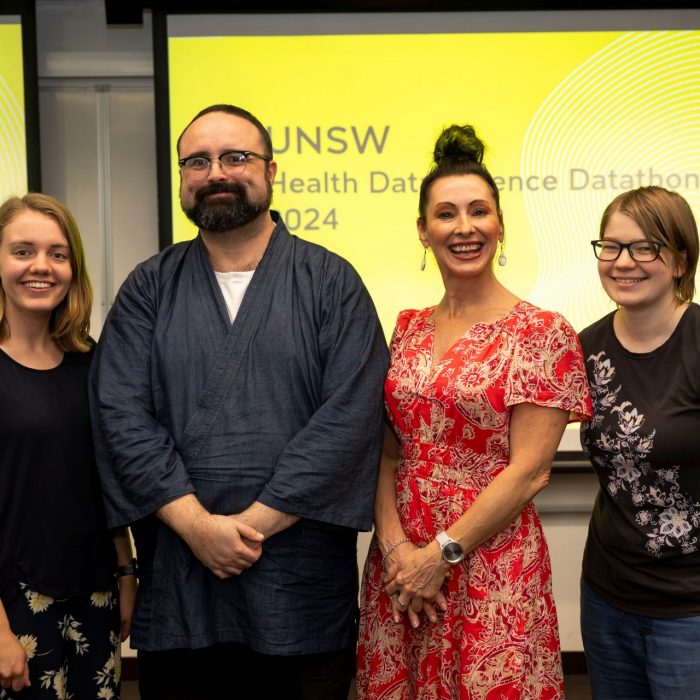Newsletter | Term 1, 2025
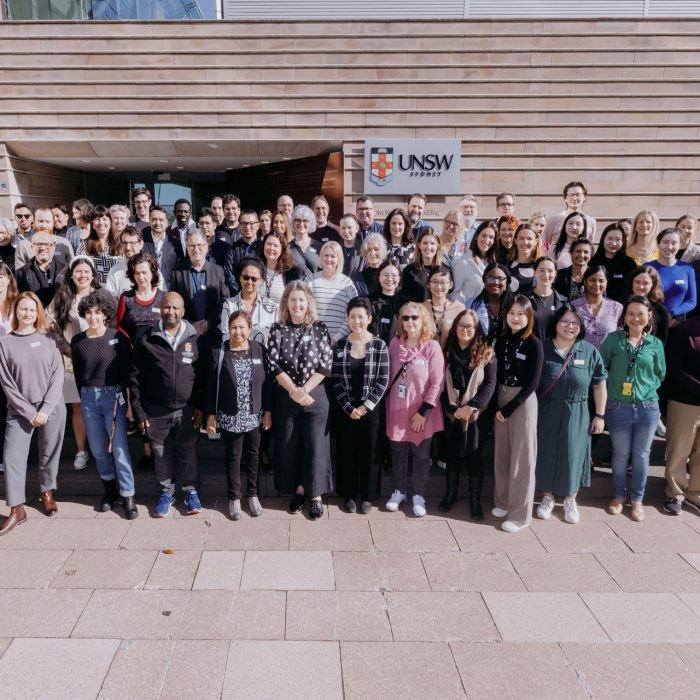
Head of School update
We’ve had a great start to 2025. The March graduation ceremony was a wonderful opportunity to meet and speak with our former students. I’m always amazed to see the career directions of our graduates, and to learn about how they are influencing public and global health, health systems and services. You can read some inspiring profiles of students and alumni here.
We extend our thanks to our partners at Western Sydney Local Health District for hosting the excellent Term 1 Masterclass, and to our amazing guest speakers who joined us for the Advocacy Lab launch. Both events were very well received by students and staff – you can read more below.
I’d like to call out Rachel Rowe for her efforts in leading the Advocacy Lab. In addition the launch, Rachel led a submission for a government inquiry, which you can read about in this edition. Please also join me in congratulating Dr Azeb Gebresilassie Tesema who was recently promoted to Lecturer.
As always, we’ve included some examples of our recent research, and some exciting new grants that were awarded.
Scientia Professor Rebecca Ivers
Head of School
April 2025
Education highlights
Western Sydney Local Health District Masterclass
Our students participated in a Health System and Service Improvement Masterclass, co-hosted by hosted by Western Sydney Local Health District. Chief Executive Graeme Loy and the Director of Finance Ross Sinclair generously gave their time to present on topics aligned to the Health Leadership and Management T1 core courses Healthcare Economics and Financial Management and Health Organisations, Strategy and Change. In these sessions, attendees gained valuable, practical insight into managing large health services.
Reflecting on the Masterclass, our students said:
“I took away that listening is a big part of what an effective CE does, both listening as an individual and as an organization.”
“Hearing from the top management on how they address day-to-day issues to how they translate their vision and mission to a strategic plan is very inspiring.”
“…understanding the importance of strategic planning and financial management is key to driving positive change.”
Thanks also to our Health Leadership and Management teaching team for making these events a success (photo credit: Rosemary Tan).
Advocacy Lab Launch
The Advocacy Lab is the School of Population Health's Australian-first program boosting change on urgent public health issues. Its vision is to build the confidence, capacity and courage of our students to participate in advocacy.
On April 3, the Advocacy Lab was launched with a panel discussion with three powerhouse public health advocates – including recipients of City of Sydney Community Recognition Award (2024) and the Nobel Peace Prize (2017). Erin Longbottom Nurse Unit Manager of St Vincent’s Homeless Health, Rada Germanos a local GP and Protect Our Water Alliance co-founder, and Ruth Mitchell chair of the International Physicians for the Prevention of Nuclear War (IPPNW) shared stories of their advocacy to improve housing security and non-resident access to healthcare, and to curb the health impacts of climate change, nuclear weapons testing and waste. With backgrounds in nursing, general practice and paediatric neurosurgery, the panel discussed how their training in medicine and health fostered their passions for social justice and equity. The panel shared their insights about getting started in advocacy, how to talk to media and persuade policymakers, build trust when working with marginalised communities and uphold values of integrity, honesty and equity.
The event was chaired by Advocacy Lab Director, Rachel Rowe. For information on how to get involved contact advocacylab@unsw.edu.au.
Engagement and impact
Advocacy Lab submission to Federal inquiry: health impacts of alcohol and other drugs
In December, the Advocacy Lab piloted its first submission workshop with a fantastic team of SPH postgraduate students. Laura Bathie, Leslie Copland, Fiona D’mello, Andrew Jolly, Amy Leahy and Madeline Secco collaborated to produce a submission to the Federal Government’s Inquiry into the health impacts of alcohol and other drugs in Australia.
The process culminated in a 3-hour submission workshop. The workshop trained students in best practice submission writing, and workshopped the issues that the team were passionate and knowledgeable about. We would like to thank Dr Sally Nathan for providing expert review of the final submission. Congratulations to the team and to team leader Rachel Rowe!
EMCR networking
School of Population Health EMCRs Dr Anthony Sunjaya, Tamara Milder, Dr Rona Macniven and A/Prof Michael Falster celebrating 20 years of impact at the NSW Cardiovascular Research Network Ministerial Awards.
Yarsi University Indonesia visits School of Population Health
Led by Yarsi's President/Rector Prof Fasli Jalal (Former Indonesian Vice-Minister of Education and Head of the National Family Planning Agency) and attended by Yarsi's Vice-Rector for Research, Dean for Graduate Education, with others joining online from Jakarta, Dr Anthony Sunjaya, Dr Anne Hogden and Dr Husna Razee held discussions in March about potential research collaborations and short courses in health leadership and management.
Please contact Dr Sunjaya to explore potential research collaborations with Yarsi University, or other institutions in Indonesia.
In the media
Read the latest media publications from the School of Population Health (Note: SPH contributors are listed here, please click on the links to see all authors).
Beach and water safety
If your tween or teen doesn’t know how to swim, it’s not too late for lessons, by Dr Amy Peden
‘Don’t be that idiot’: surfing in a cyclone could cost you $16,000 or your life, by Dr Amy
Drowning risk spikes on Australia Day and public holidays, new study shows, By Dr Amy Peden
Despite decades of beach safety ads, at least 55 people have drowned in Australia this summer. It’s time to change tack, by PhD Candidate Samuel Cornell
Cabana drama: 5 expert tips on how not to be branded a twit when using a beach tent, by PhD Candidate Samuel Cornell
Regular lessons have paused – but your kids should still practise their swimming this summer, by Dr Amy Peden
The surprising ways ‘swimming off’ a hangover can be risky, even if alcohol has left your system, by Dr Amy Peden
Let’s take the boat out! 5 tips on staying safe on the water if you fancy a drink, by Dr Amy Peden
More from The Conversation
Australia spends $714 per person on roads every year – but just 90 cents goes to walking, wheeling and cycling, by PhD Candidate Peter McCue
Why the WHO has recommended switching to a healthier salt alternative, by Dr Xiaoyue (Luna) Xu
Practising culture on Country can improve Aboriginal people’s health and wellbeing, by A/Prof Brett Biles, Dr Aryati Yashadhana and Nina Serova
Trust matters but we also need these 3 things to boost vaccine coverage, by A/Prof Holly Seale
Research highlights
Grants
Dr Carolyn Mazariego has been awarded a $600,000 Early Career Fellowships from the Cancer Institute NSW for the project Scalable & sustainable implementation of tumour-specific patient reported outcome collection programs to ensure person-centred cancer clinical care. Dr Mazariego’s goal is to improve the quality of life for cancer patients by making sure their voices are heard and their needs are met, and she will develop specialised survey tools to help address the wide range of issues patients face.
Professor Rebecca Ivers received a $3,014,025 National Health and Medical Research Council (NHMRC) Investigator Grant (L3) for Reducing inequities in injury across the life course. The research will help improve understanding of injury burden and risk factors in Australia and globally. Prof Ivers also told the UNSW Newsroom that
“The research will also importantly help fund PhD scholarships and training opportunities for the next generation of injury researchers.”
PhD Candidate Abdullah Al Masud has been awarded the Australian Society for Antimicrobials (ASA) Keryn Christiansen Research Grant 2025 for his project titled Exploring the Factors Impacting Antibiotic Use and Adherence Amongst Multicultural Community Members in Australia. This cross-sectional mixed-methods project will include a survey among 1,100 multicultural community members across Australia and hold focus group discussions with individuals from NSW.
More highlights
Health Data Science Datathon 2024
As a student of Masters Health Data Science at the CBDRH, UNSW, Dr Lisa Sharwood competed (in a team of 4) in the UNSW Health Data Science Datathon 2024 organised by CBDRH to analyse EPIWATCH DATA and built a full data science pipeline to predict syndromic outbreaks and potential for pandemics. 51 students participated from 12 different UNSW schools and research centres. Over 2 days Dr Sharwood’s team analysed 70,000 rows of EPIWATCH surveillance data. Their team won! Dr David Muscatello was one of the judges at the event. (Photo credit: Cassandra Hannagan)
Child protection reports: an opportunity to mobilise early health and social support
A new study led by A/Prof Kathleen Falster shows how child protection contacts can be re-envisaged as an early prevention opportunity to support child development and wellbeing in a two jurisdiction data linkage study. Tasnia Ahmed led the data and analytic work in NSW, supported by Dr Mark Hanly at CBDRH, with NSW clinical and policy collaborators including Professor Raghu Lingam (UNSW), Dr Michelle Cretikos (NSW Health) and Dr Jessica Stewart (DCJ).
Aboriginal adolescent physical activity associated with social and emotional well-being
New findings from the Next Generation: Youth Well-Being (NextGen) Study (Dr Rona Macniven, Prof Rebecca Ivers with co-authors) found that higher physical activity in Aboriginal Adolescents was associated with greater wellbeing and resilience, stronger connections to community activities, sports, and cultural engagement.

.cropimg.width=700.crop=basic.jpeg)
.cropimg.width=700.crop=basic.jpeg)


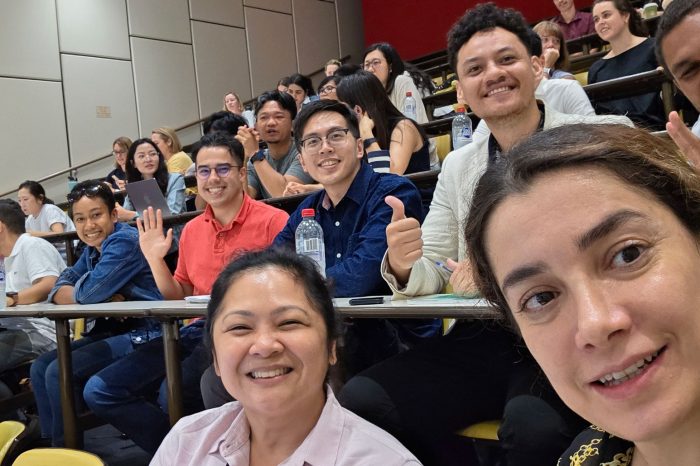
.cropimg.width=700.crop=basic.jpeg)
